Fusing Weed Plants: Grafting Cannabis At Home to Expand Your Garden
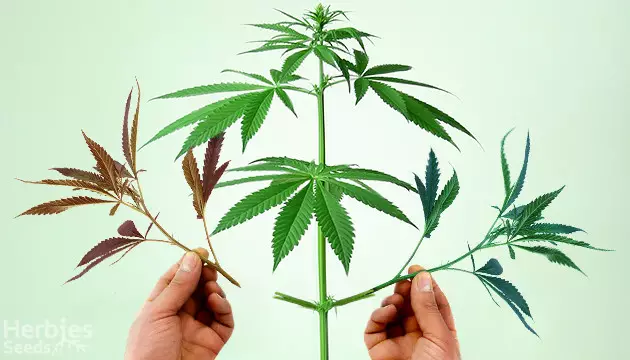
Grafting is an ancient practice within horticulture communities that is, essentially, the process of fusing two plants to create a single plant with traits of both. But how can grafting be beneficial to cannabis growers? It turns out that grafting cannabis is one of the best ways to experiment with cannabis and optimize your gardening experience. In this article, we will explain how exactly you can implement grafting in your growing practice to grow several plants in one. That’s some kind of magic!
Defining The Practice Of Grafting
Grafting is the practice of allowing multiple plants to grow from one singular mother plant. This is done by taking the upper part of one plant and fusing it with another plant. Anything above where the two plants come together (the grafting line) is known as the scion, and everything below the grafting line is referred to as the rootstock. Grafting is a common horticultural practice whose techniques can be used to heavily benefit cannabis cultivators.
Why Should I Consider Grafting Cannabis?
There are many reasons why you should consider grafting cannabis. It helps to strengthen plants by breeding the best traits, and it also saves space by allowing multiple strains to grow from the same mother, among numerous other benefits.
One Rootstock, Multiple Strains
One of the best reasons to start grafting marijuana plants is to grow multiple strains on one plant. If you’re from a place where there are restrictions on how many plants you can grow or how much space is allowed to grow cannabis, grafting is the answer. You can take a scion of any plant of your choice and graft it to a healthy, reliable rootstock. This will guarantee your scion will flourish, and you will be able to grow multiple strains out of one singular rootstock.
Save Space & Optimize Pollination

Because cannabis is not self-pollinating, female plants require male plants to pollinate them in order to produce seeds. Not all cannabis growers can afford the space to keep multiple male and female plants in close range of each other, but grafting marijuana is a great solution for this. Through grafting two different plants together, one male and one female, you can have a male and female plant growing together out of the same rootstock, saving space while simultaneously guaranteeing pollination.
Select The Best Traits From Rootstocks
If you’ve ever had a plant that just grows really well and seems impervious to all harm, you may have wondered how to give some of those traits to your weaker plants. Again, grafting is your solution! If you have a plant that’s resistant to mold, disease or pests, grafting scions onto this rootstock is a surefire way to protect weaker plants and gift those beneficial traits to new plants of those scions.
Grafting Cannabis Is An Alternative To Cloning
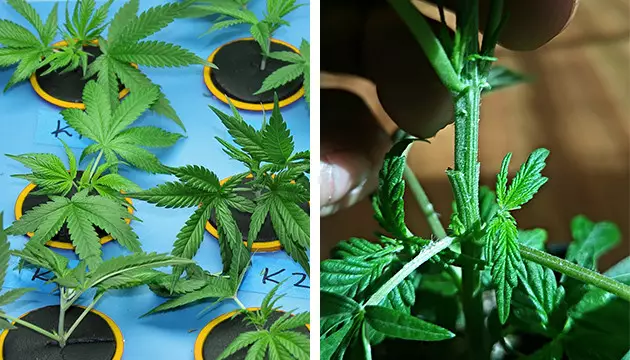
| Cloning Cannabis | Grafting Cannabis |
Grafting cannabis can in many ways be seen as a different method of cloning plants. Cloning can be a strenuous process for your plants, and some of them cannot handle the cloning process at all. Sometimes, all you really need is a stronger base to help hard-to-clone plants thrive. Taking weak scions and fusing them with a strong rootstock will allow these cuttings to grow without the need to propagate them.
Use Scions To Repair Roots
Grafting marijuana is an excellent method to know if you ever need to repair plants that have taken damage. Harsh conditions, especially for outdoor cultivators, can cause cannabis plants to develop root damage, which normally leads to the plant dying soon after. However, with grafting, you can take a scion of the plant and fuse it with a healthy rootstock, prolonging the life of the plant despite its root damage.
Use Grafting To Try New Strains
Grafting cannabis allows cultivators to experiment with growing new strains they might not be familiar with. This is because grafting enables cannabis growers to grow multiple strains from a singular rootstock, which is excellent for those who may want to try several new strains at once but don’t want to commit to nurturing an entirely new plant they’re unfamiliar with, or just don’t have enough space for several adult plants. Growers can take a clone or seedling and use it as a scion to graft onto a larger rootstock, just to try out a new strain.
The Key To Successfully Grafting Cannabis Plants
Grafting marijuana plants is quite tricky, so it’s important to have an idea of what your plants will need from you in terms of environment, as well as how much time they’ll need. Nurturing and patience are both key factors here.
Have The Correct Environment
Because grafting two different plants together is a strenuous task for your cannabis, you will need to keep your plants on a 24-hour on/0-hour off lighting schedule. Scions require a lot of light to flourish and will wither and die when kept in the dark. This is why it’s important to practice grafting indoors before moving plants outside. In regard to temperature and humidity, your normal levels should do just fine.
Give Your Plants Enough Time
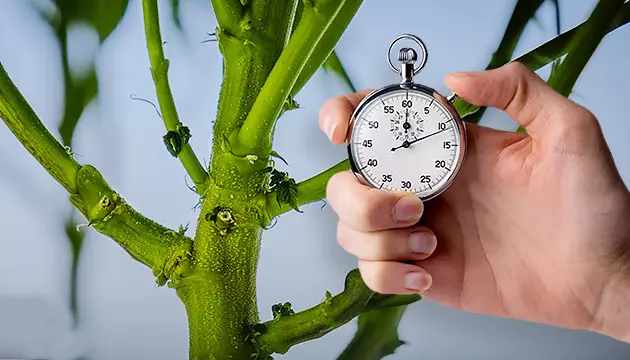
Grafting cannabis is not an easy task, and it will take your plants some time to fully take on a new scion. Grafting larger, older cannabis plants will take longer, as the full plant has had more time to mature; using young, smaller plants will be much faster if you’re looking for quicker results. In total, the time it takes for the grafting process to be complete is about 2 weeks.
Risks Of Grafting Cannabis
As you can probably see by now, grafting is not the simplest method of propagation and can be very stressful on your plants. This is why it’s important that you abide by the correct environmental requirements for your plants. It’s also important to only graft together strains that have similar flowering cycles. A scion and a rootstock with drastically different schedules can cause nutrient deficiencies, as they will be at different stages of life at different times, which can also result in a smaller yield.
Learn How To Graft Cannabis Plants
Now that you know everything there is to know about why you should graft cannabis plants, it’s time to learn exactly how to graft cannabis plants together. If you take this process step by step, you should have no problems at all!
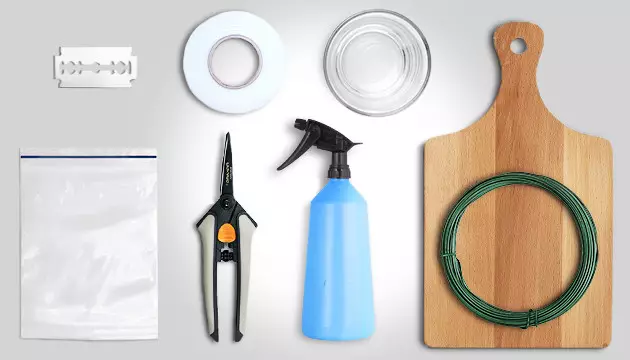
The method we’ll be describing is the simplest method of grafting, called the Whip Grafting Method. You will need:
- A pair of gardening shears
- A sharp razor blade
- A cutting board
- A glass of water
- Vegetative nutrient solution in a spray bottle (pH 6)
- Grafting tape or plumber’s tape
- Gardening wire
- A plastic bag with a seal
Now, let’s begin:
Step One: First, select a healthy scion from the cannabis plant you wish to graft and a healthy rootstock plant. Make sure the width of the rootstock and the scion are similar; this will encourage successful grafting.
Step Two: Second, you will need to trim the foliage on your scion and your rootstock. On your scion, remove the majority of the foliage from the stem, leaving just a few leaves at the tip. On the rootstock, remove the foliage below where you intend to graft.
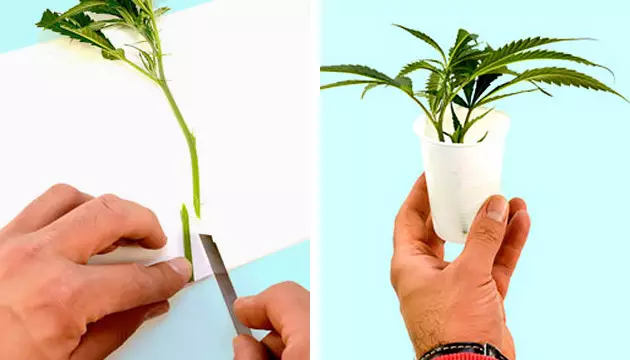
Step Three: This is where you will cut your scion. Once you’ve selected and trimmed your scion, use your gardening shears to cut the branch off of the plant. Transfer your scion to your cutting board and make a diagonal incision at the scion’s base. Once this is done, transfer the scion to a glass of water.
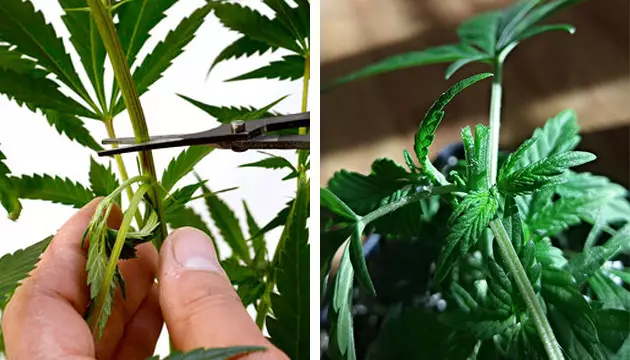
Step Four: Now we move on to the rootstock. Take your garden shears and cut just above your intended grafting line. Use your razor blade to make a diagonal cut in the rootstock, similar to the one you made for the scion.
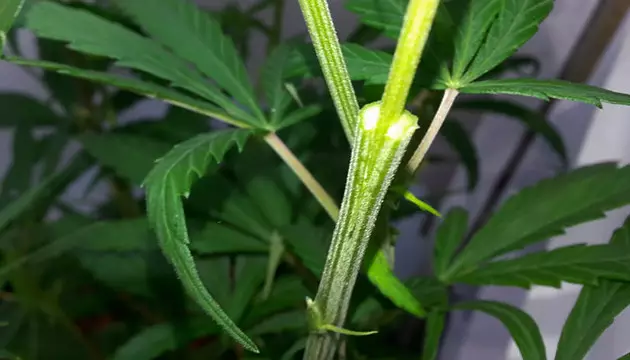
Step Five: Moving rather quickly, as you don’t want the insides of your plants exposed to air, give your scion and rootstock a quick spritz of nutrient solution and attach the scion to the rootstock. Make sure your scion and rootstock are lined up as perfectly as possible, giving them each enough surface area to connect.
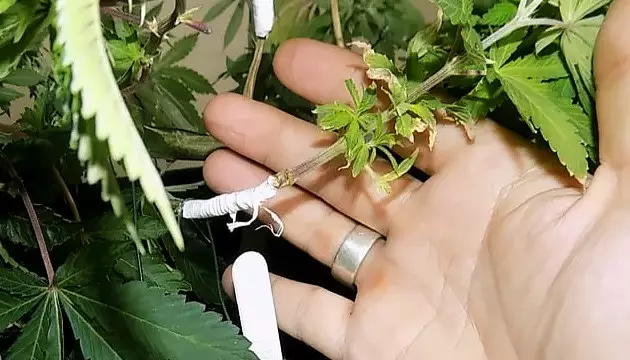
Step Six: Once your scion and rootstock are lined up, use your tape to bind them together. Start with a small piece of tape to hold things together and then wrap the small piece with a larger piece to block out any airflow or sunlight.
Step Seven: Reinforce the tape with some gardening wire in a crisscross formation. Start crossing the wire above the graft site and end a little below the graft site. This will give your plant stability.
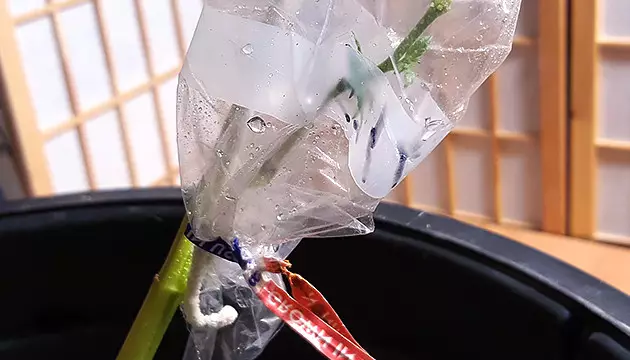
Step Eight: Once your grafting site has been secured, take a plastic bag and spray the nutrient solution inside it. Wrap the bag around the grafted branch and seal it almost completely, leaving a little bit of space for airflow – just make sure the bag doesn’t come into contact with the foliage at the tip of your scion.
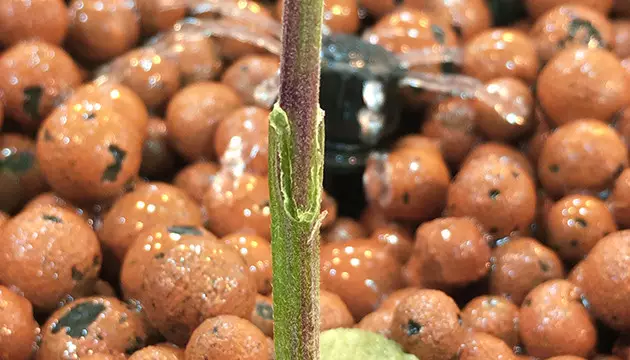
Step Nine: As a final note, the tape should be removed after a couple of days, or once the grafting fusion has been successful. Keep an eye on your plant to make sure it is thriving.
Start Grafting Cannabis Today
Grafting cannabis may seem like a complicated practice reserved for experienced horticulturalists, but with enough practice, even an amateur gardener can successfully graft plants together. Grafting is an excellent practice for those who want to preserve the best traits of their favorite plants, or who want to grow either something familiar or something new while also preserving space in the garden. There are few downsides to grafting cannabis plants, and mastering this technique will bring nothing but benefits.
Herbies Head Shop expressly refuses to support the use, production, or supply of illegal substances. For more details read our Legal Disclaimer.
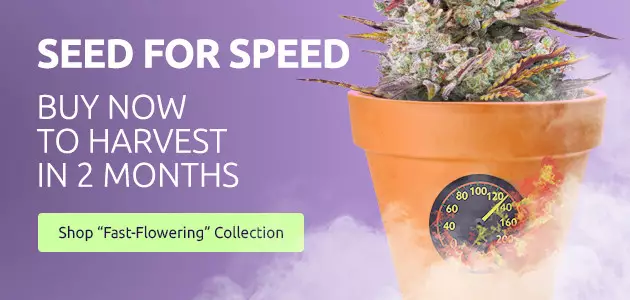












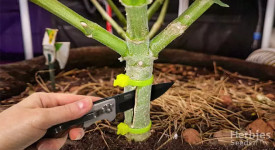

Thank you for leaving a comment for us!
Your feedback will be posted shortly after our moderator checks it.
Please note that we don’t publish reviews that: